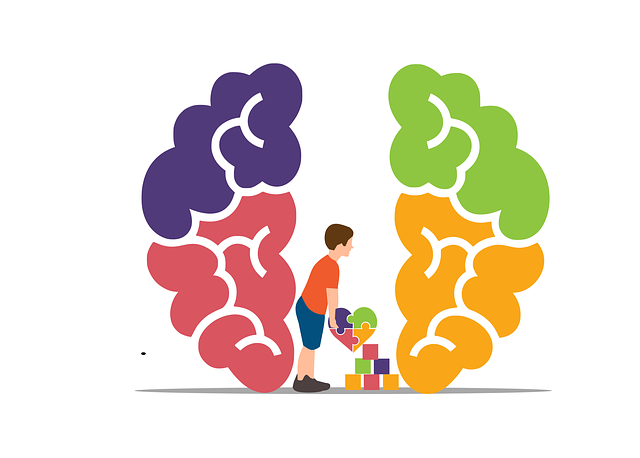Denver abuse survivors often face significant stress due to traumatic experiences, impacting their mental and emotional well-being. Effective stress management techniques through tailored therapy, group sessions, mindfulness exercises, physical activity, and Mental Wellness Coaching Programs are crucial for recovery. Denver Abuse Survivors Therapy (DAT) combines in-person sessions, crisis intervention guidance, and a podcast series to create a supportive environment, empowering individuals with tools for continuous mental wellness growth.
In the journey towards healing, Denver abuse survivors often face significant stress. This article delves into effective stress management techniques tailored for this unique population. We explore how therapy plays a pivotal role in teaching resilience and coping strategies, offering practical guidance for daily stress reduction. Additionally, we highlight the importance of supportive environments and resources that foster continuous growth in the context of Denver abuse survivors’ therapeutic journeys.
- Understanding Stress and Its Impact on Denver Abuse Survivors
- The Role of Therapy in Teaching Effective Stress Management Techniques
- Practical Strategies for Daily Stress Reduction and Resilience Building
- Creating a Supportive Environment: Resources and Community for Continuous Growth
Understanding Stress and Its Impact on Denver Abuse Survivors

Stress is a profound and often complex issue for Denver abuse survivors, stemming from traumatic experiences that can significantly impact their mental and emotional well-being. The effects of abuse can lead to heightened stress responses, making it crucial for survivors to develop effective stress management techniques as part of their therapy journey. Understanding the intricate relationship between stress and trauma is essential in designing supportive therapies tailored to Denver abuse survivors’ unique needs.
Through Denver abuse survivors therapy, individuals learn to identify triggers that set off stress responses and gain valuable self-awareness exercises to regulate their emotions. Public awareness campaigns development has also played a significant role in destigmatizing mental health issues among survivors, encouraging them to seek help. By incorporating emotional regulation strategies into their lives, survivors can better cope with stressors, reduce anxiety, and foster resilience, ultimately enhancing their overall recovery process.
The Role of Therapy in Teaching Effective Stress Management Techniques

Therapy plays a pivotal role in teaching effective stress management techniques, especially for individuals who have experienced trauma, such as Denver abuse survivors. Through structured counseling sessions, therapists help clients understand and challenge negative thought patterns that contribute to stress and anxiety. By providing a safe and supportive environment, therapy facilitates the development of healthy coping mechanisms tailored to each individual’s unique experiences and needs.
In addition to individual therapy, group sessions can also be beneficial in fostering community support and encouraging peer learning. Denver abuse survivors can find solace and empowerment in sharing their journeys with others who have faced similar challenges. This collective approach not only enhances the effectiveness of stress management training but also aligns with the principles of Healthcare Provider Cultural Competency Training, Crisis Intervention Guidance, and Mental Health Policy Analysis and Advocacy, ensuring comprehensive care that respects diversity and promotes equitable access to healing resources.
Practical Strategies for Daily Stress Reduction and Resilience Building

Stress management is a crucial aspect of maintaining mental wellness, especially for individuals who have experienced trauma, such as those seeking Denver Abuse Survivors Therapy. Integrating practical strategies into daily routines can significantly reduce stress and build resilience. One effective method is mindfulness meditation, which helps individuals stay present and cultivates a sense of calm. Dedicating just 10 minutes each day to practice deep breathing exercises or guided visualizations can make a notable difference in managing triggers and anxiety.
Additionally, engaging in regular physical activity is a powerful tool for stress reduction. Whether it’s a brisk walk, yoga session, or a full workout routine, exercising releases endorphins, which act as natural mood lifters. Combining this with Mental Wellness Coaching Programs Development can provide individuals with tailored strategies to manage stress and improve overall mental wellness. Moreover, listening to Mental Wellness Podcast Series Production featuring experts in the field offers valuable insights and tips for navigating stress and trauma. Crisis Intervention Guidance is also essential, offering immediate support during intense moments and teaching effective coping mechanisms.
Creating a Supportive Environment: Resources and Community for Continuous Growth

Creating a supportive environment is paramount in teaching effective stress management techniques. At Denver Abuse Survivors Therapy (DAT), we understand that healing and growth often occur best within communities that offer encouragement, understanding, and accessible resources. Our approach integrates various tools, including crisis intervention guidance tailored to individual needs. By fostering an atmosphere of safety and belonging, DAT enables clients to explore and implement coping strategies that promote mental wellness.
This supportive ecosystem extends beyond in-person sessions. We leverage the power of technology through our Mental Wellness Podcast Series Production, offering ongoing access to expert insights and personal narratives. This multimedia resource ensures that individuals can engage with crisis intervention guidance and stress management techniques at their own pace and convenience. Ultimately, we believe that continuous growth is possible when individuals are equipped with tools and surrounded by a supportive network focused on enhancing mental wellness.
Denver Abuse Survivors Therapy plays a pivotal role in equipping individuals with powerful stress management techniques. By understanding the unique impact of stress on survivors, therapy sessions can foster resilience and provide practical tools for daily coping. Through a comprehensive approach that includes therapy, community support, and accessible resources, Denver Abuse Survivors can navigate life’s challenges more effectively, ensuring long-term well-being and personal growth.














